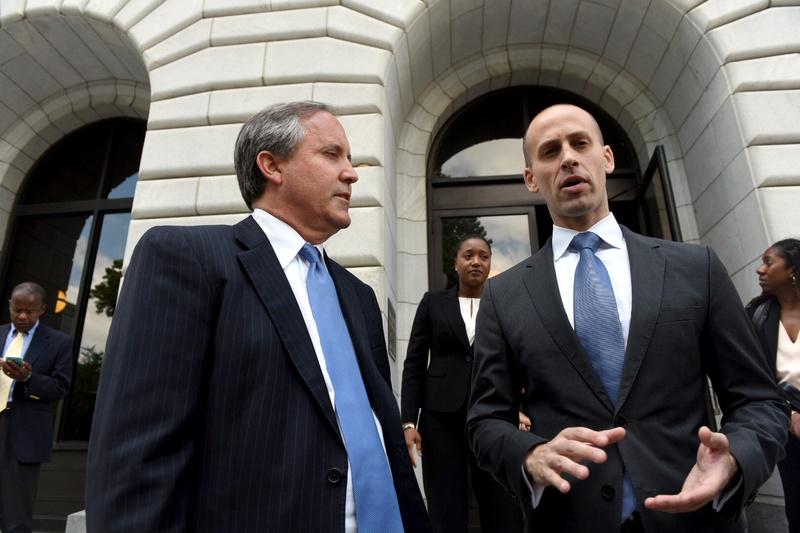-
Tips for becoming a good boxer - November 6, 2020
-
7 expert tips for making your hens night a memorable one - November 6, 2020
-
5 reasons to host your Christmas party on a cruise boat - November 6, 2020
-
What to do when you’re charged with a crime - November 6, 2020
-
Should you get one or multiple dogs? Here’s all you need to know - November 3, 2020
-
A Guide: How to Build Your Very Own Magic Mirror - February 14, 2019
-
Our Top Inspirational Baseball Stars - November 24, 2018
-
Five Tech Tools That Will Help You Turn Your Blog into a Business - November 24, 2018
-
How to Indulge on Vacation without Expanding Your Waist - November 9, 2018
-
5 Strategies for Businesses to Appeal to Today’s Increasingly Mobile-Crazed Customers - November 9, 2018
Judge orders Texas to let feds review new voter ID outreach
The demands, backing up verbal orders that U.S. District Judge Nelva Gonzales Ramos issued during a Monday hearing on the state’s voter ID law in her Corpus Christi courtroom, were a victory for U.S. Justice Department lawyers who accused state officials of using needlessly restrictive language when describing who can vote November 8. Texas then hired some experts in crisis management (people who, as we’ve written in the past, have in the past handled PR for everyone from the tobacco industry to military dictators to the company responsible for the worst industrial disaster ever) as part of a $2.5 million “multi-faceted strategy to reach and educate voters”. But university researchers a year ago also found that mere confusion over Texas’ voter ID rules kept people away from the polls who could have voted but mistakenly thought the new law blocked them from doing so. Judge Ramos’ order said Texas must ensure its new rules allow “the opportunity for voters who do not possess” photo identification “and can not reasonably obtain it to cast a regular ballot”.
Advertisement
Marc Rylander, a spokesman for Paxton, defended the state’s previous wording, which said only those with a government-issued ID or those who “have not obtained” such identification could vote.
But U.S. Department of Justice and voting rights groups this month complained to Ramos that Texas was flouting the order by making misleading statements in the press or publishing promotional materials that mischaracterized the language in Ramos’ order. The state is now required to “re-issue its press releases” and edit its educational materials to correctly reflect the court’s ruling, using language issued by the court itself.
US District Judge Nelva Gonzales Ramos also ordered Texas to begin letting federal officials review drafts of voter outreach and education documents before being published.
The state agreed to weaken its strict voter ID law in July, after a federal appeals court found the 2011 Texas law discriminated against minorities and the poor. Paxton’s office has said it plans to appeal to the U.S. Supreme Court this week, still seeking to implement the state’s voter ID law in November.
Ed Espinoza, executive director of Progress Texas, said his organization had created the non-partisan GoVoteTexas.org website “to help every Texan learn how easy it is to vote”.
Texas officials claim these rules prevent voter fraud, which Gov.
Q: Why was the law considered discriminatory?
Opponents say 600,000-plus registered voters lacked one of seven suitable IDs under the law. Meanwhile, Texas was allowed to fully enforce the law even amid ongoing legal battles during the last three election cycles, and there were few reports of voter disruption.
Advertisement
The federal government is accusing Texas of circulating “inaccurate or misleading information” to poll workers and would-be voters about relaxed identification requirements for the November elections.





























